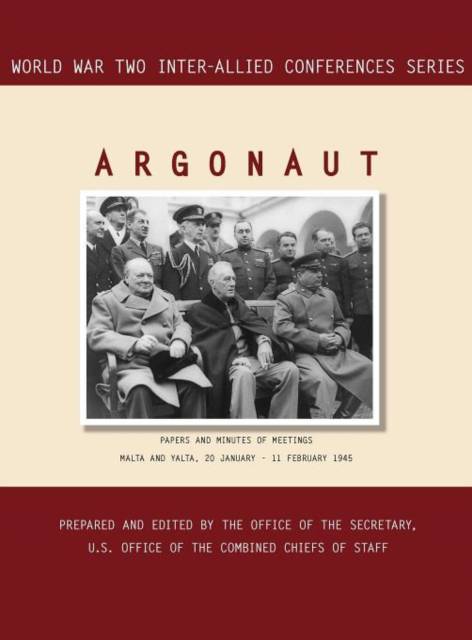
- Afhalen na 1 uur in een winkel met voorraad
- Gratis thuislevering in België vanaf € 30
- Ruim aanbod met 7 miljoen producten
- Afhalen na 1 uur in een winkel met voorraad
- Gratis thuislevering in België vanaf € 30
- Ruim aanbod met 7 miljoen producten
Zoeken
Argonaut
Malta and Yalta, 20 January-11 February 1945 (World War II Inter-Allied Conferences series)
Inter-Allied Conferences, Office of the Secretary, Joint Chiefs of
Hardcover | Engels
€ 88,95
+ 177 punten
Omschrijving
During World War II, President Franklin D. Roosevelt and Prime Minister Winston S. Churchill formulated allied grand strategy at a series of high-level conferences held in Washington, DC, Casablanca, Quebec, Cairo, Tehran, Yalta, and Potsdam. At the Tehran, Yalta, and Potsdam conferences, the Russian leader, Joseph Stalin, also played a major role. Under policy guidance from their national leaders, the newly formed US Joint Chiefs of Staff and their British counterparts, known collectively as the Combined Chiefs of Staff, hammered out the military details of allied strategy. The minutes of the Combined Chiefs' meeting at the major conferences touch on virtually every policy and strategy issue of World War II, from initial troop deployments to counter Axis aggression, through the debates about the location and timing of the principal Anglo-American offensives, to the settlement of post-war occupation boundaries. Besides being an invaluable primary source on the early years of the Joint Chiefs of Staff and on the planning and conduct of World War II, these documents also offer insights for today on the problems of managing a global coalition war. Originally highly classified documents, the minutes were declassified on October 3, 1973. ARGONAUT (Malta and Yalta, 20 January-11 February 1945). Roosevelt, Churchill, Stalin, and their military leaders reached agreements on the occupation of Germany and Austria, including the creation of a French zone in Germany. Roosevelt and Stalin made a secret agreement on Soviet territorial gains in the Far East in return for Soviet participation in the war against Japan. The Big Three settled the issues of United Nations voting rights and Poland's government and frontiers. The three leaders issued a Declaration on Liberated Europe in which they committed themselves to free elections and democratic governments in the countries freed from the Nazis.
Specificaties
Betrokkenen
- Auteur(s):
- Uitgeverij:
Inhoud
- Aantal bladzijden:
- 354
- Taal:
- Engels
Eigenschappen
- Productcode (EAN):
- 9781780394886
- Verschijningsdatum:
- 1/09/2011
- Uitvoering:
- Hardcover
- Formaat:
- Genaaid
- Afmetingen:
- 216 mm x 279 mm
- Gewicht:
- 1106 g

Alleen bij Standaard Boekhandel
+ 177 punten op je klantenkaart van Standaard Boekhandel
Beoordelingen
We publiceren alleen reviews die voldoen aan de voorwaarden voor reviews. Bekijk onze voorwaarden voor reviews.











